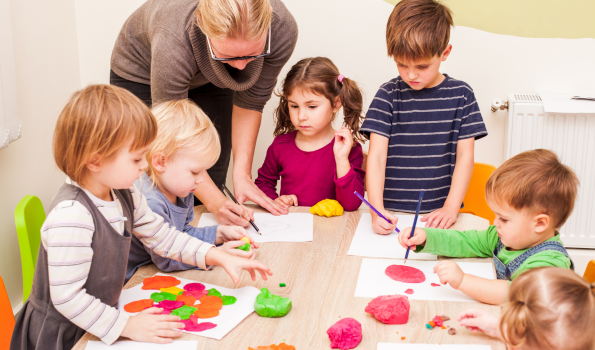By: Belinda Philippi for Class Professionals

As a child, you may have fond memories of playing with friends and family members. Play is an essential part of childhood and provides numerous opportunities for learning and development. Play allows children to explore the world around them, make sense of their experiences, and develop essential skills such as problem-solving, social-emotional awareness, and creativity.
For young children, play is their work, and it’s essential to provide them with a safe and stimulating environment that encourages play. Educators play a crucial role in fostering and supporting children’s play experiences. As an educator, your role in play is multifaceted, and it’s important to understand the different ways you can support children’s play.
Firstly, educators need to provide a safe and stimulating environment for play. This involves setting up play areas with age-appropriate materials and resources, ensuring that the environment is clean and tidy, and providing ample space for children to move and explore. When children feel safe and secure, they are more likely to engage in play and learn new skills.
Secondly, educators need to observe and document children’s play. Observation allows educators to understand children’s interests, strengths, and challenges, and tailor their play experiences accordingly. Documentation can take various forms, such as written notes, photographs, or videos, and can provide valuable insights into children’s learning and development.
While observing and documenting children’s play is essential, educators also have a role in participating in play. When educators join children’s play, they have the opportunity to model social skills such as turn-taking, cooperation, and problem-solving. However, it’s essential to approach the role of the co-player with care and respect for children’s voices and autonomy.
When educators join in children’s play, they need to act as co-players rather than directors or leaders. This means that educators need to follow the children’s lead, respond to their cues, and support their play experiences. Educators need to be mindful of not taking over the play and allowing children to have control over their play experiences.
As co-players, educators can offer support and guidance while encouraging children’s creativity and imagination. For example, educators can act as characters in a socio-dramatic play scenario, such as a doctor or a shopkeeper, while encouraging children to develop their roles and storylines. By participating in play, educators can build positive relationships with children and support their learning and development.
In conclusion, the role of the educator in play is essential to support children’s learning and development. Educators need to provide a safe and stimulating environment, observe and document children’s play, and participate as co-players. By approaching the role of the co-player with care and respect, educators can foster positive play experiences and support children’s learning and development.
“Because when it comes to childcare, play is serious business!”

